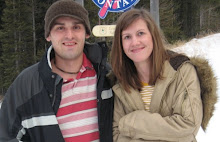HONORS/ENGLISH 293A
MEMORY AS TECHNOLOGY/TECHNOLOGY AS MEMORY FROM PLATO TO THE MATRIX
TR 830-945, Armstrong 121
Professor Sandy Baldwin - Stansbury 359 - 293-3107x452 - Office Hours TR 120-220 – charles.baldwin@mail.wvu.edu
. . . a computer is nothing but a means for a memory to get from one state to another.
- Joachim Weyl
There is nothing more immediate and natural than our memory, or so it seems. At the same time, there is little to say about memory. We speak of memories recalled and not memory itself, obliterating the process involved. Rather than repeat and confirm the self-evident nature of memory, this course argues that the naturalness and immediacy of our memory is in fact the outcome of applying complex techniques or "arts of memory." The aim of this course is to understand memory as technology and technology as memory, in order to grasp the historical production of individual memory and the cultural significance of archives and memorials. Every culture is framed by an art of memory as the media by which it invents itself. While all technologies involve processes of inscription, archivization, and representation, this class argues that these processes function as arts of memory. All cultural artifacts are memory technologies or mnemotechnics. The question is whether mnemotechnics preserve and enable memories, or - to the contrary - if they produce memories prosthetically. Is memory the essence of being human or a cultural artifact?
Drawing on a range of sources, we will examine the art of memory concealed in our concepts of writing, literature, visual imagery, film, and digital interfaces, as well as in theories of mind and learning. At stake are competing claims for the mnemotechnics of new media technologies, contrasting the possibility of a kind of super-human memory with struggles over the nature of historical memory under digital conditions. Finally, we will examine significant memorials as memory machines -e.g. the World Wide Web, the Holocaust Museum, the Mormon "mountain of names," Disneyworld, The Human Genome Project - to develop a model of cultural mnemotechnology as the medium for historical understanding.

No comments:
Post a Comment